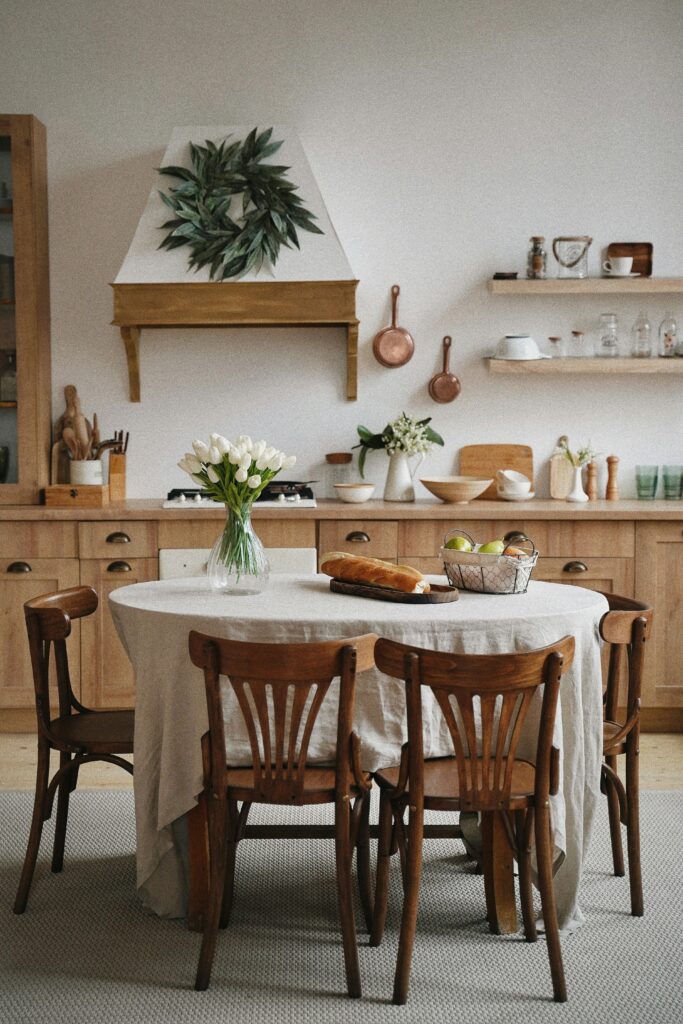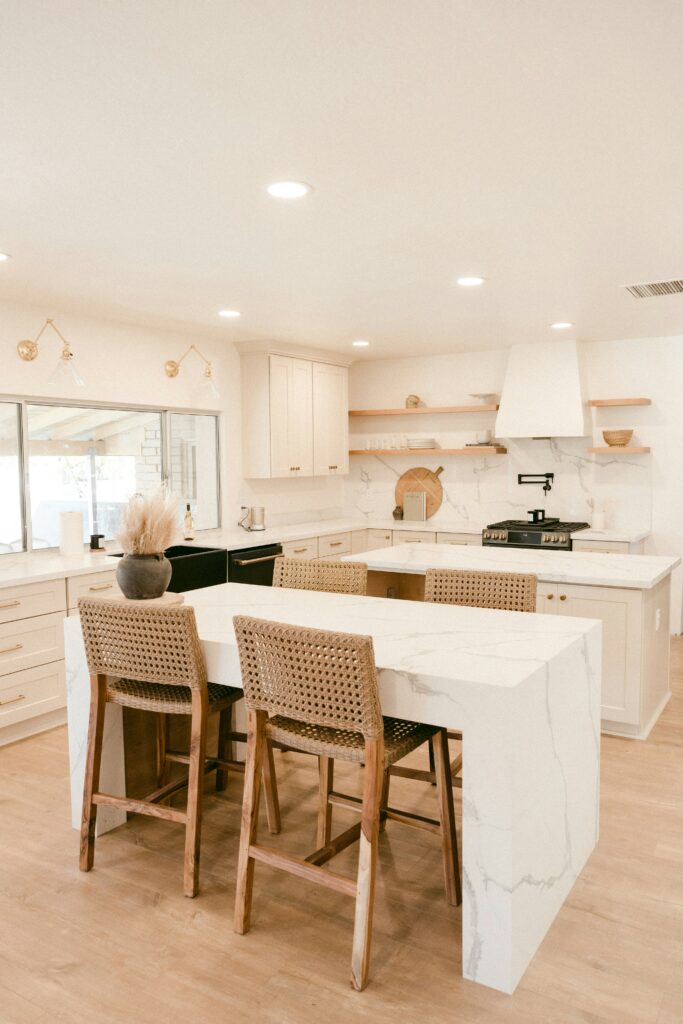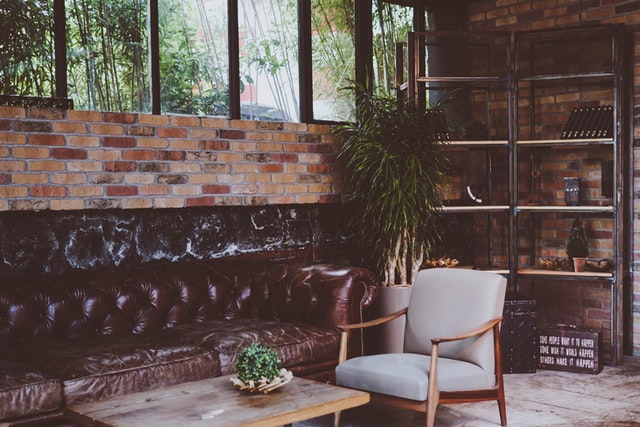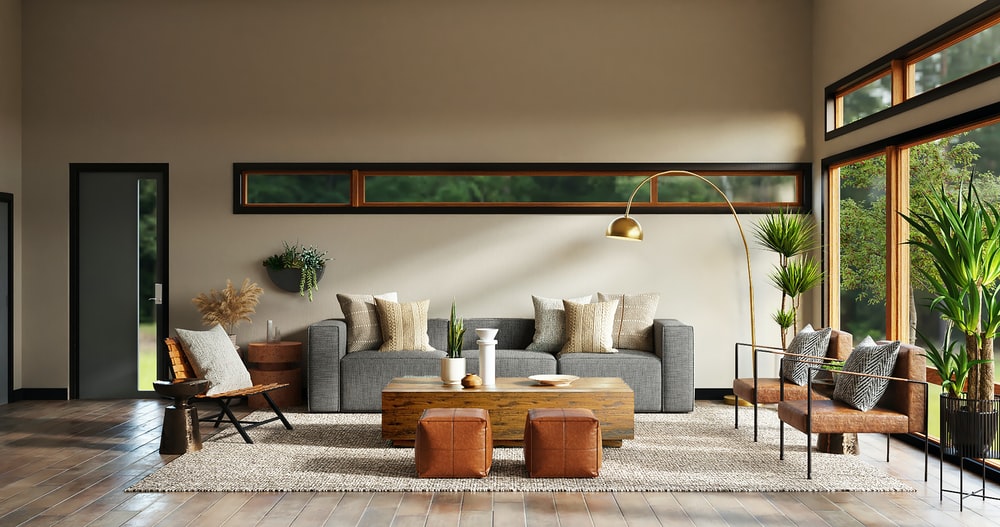Modular kitchen design trends are constantly evolving to meet the needs of modern lifestyles and aesthetic preferences. Here are some key trends that have been prominent:

Smart Storage results With space getting a decoration in civic homes, modular kitchens are incorporating intelligent storehouse results like pull- out closets, corner carousels, and perpendicular snuggeries
to maximize space application and association. Minimalistic Design Clean lines, satiny homestretches, and minimum clutter are defining ultramodern kitchens. Minimalistic designs not only produce an vision of spaciousness but also grease easy conservation. Innovative Accoutrements From high- buff laminates to matte homestretches, modular kitchens are embracing a variety of accoutrements to add texture and visual interest. also,eco-friendly accoutrements like bamboo and recycled wood are gaining fashionability due to their sustainability. Integration of Technology Smart kitchen appliances and widgets are seamlessly integrated into modular designs, offering convenience and effectiveness. This includes features like erected- in charging stations, touchless gates, and voice- controlled lighting systems. Open Shelving and Display Open shelving is making a comeback in modular kitchen designs, allowing homeowners to showcase ornamental particulars, shops, or swish tableware. It adds a particular touch to the kitchen while also serving as practical storehouse. Multi-Functional islets Kitchen islets are no longer just fresh counter space. They serve multiple functions similar as dining, storehouse, and medication areas. Some designs indeed incorporate erected- in cesspools or cooktops, transubstantiating the islet into a central mecca for cuisine and socializing. Bold Colors and Contrasts While neutral palettes remain popular for their dateless appeal, there is a growing trend towards incorporating bold colors and differing rudiments. This could be achieved through vibrant press colors, striking backsplashes, or statement countertops. flawless Integration with Living Spaces As open bottom plans continue to dominate ultramodern home design, modular kitchens are seamlessly integrated with living and dining areas. This creates a cohesive and fluid living space where cuisine, dining, and amusing mix painlessly. Personalization and Customization Homeowners are decreasingly seeking individualized traces in their kitchen designs, whether it’s through custom cabinetry, unique tackle, or substantiated accentuations. Modular kitchens offer endless possibilities for customization to reflect individual tastes and preferences. Sustainable Practices Sustainability is a growing concern for numerous homeowners, leading to the relinquishment ofeco-friendly practices in kitchen design. This includes energy-effective appliances, water- saving institutions, and usingeco-conscious accoutrements throughout the kitchen. These modular kitchen design trends reflect a shift towards functionality, aesthetics, and sustainability, feeding to the evolving requirements and preferences of ultramodern homeowners.


Smart Storage Solutions: With urban living spaces shrinking, efficient storage solutions are indispensable. kitchens now feature ingenious storage options such as pull-out pantry units, vertical racks for pots and pans, and customized drawer inserts for cutlery and utensils. These solutions not only optimize space but also make it easier to access items while cooking.
Minimalistic Design: The mantra of “less is more” is at the heart of modern kitchen design. Clean lines, flat-panel cabinets, and concealed handles contribute to a clutter-free look. Minimalistic designs focus on functionality, allowing essential elements to shine without unnecessary ornamentation.
Innovative Materials: The choice of materials in modular kitchen design has expanded beyond traditional options. High-pressure laminates with realistic wood and stone textures offer durability and aesthetic appeal at a fraction of the cost. Additionally, engineered quartz countertops provide a sleek and low-maintenance alternative to natural stone.
Integration of Technology: Technology is seamlessly woven into the fabric of contemporary kitchens. Smart appliances, such as refrigerators with touchscreen interfaces and ovens with Wi-Fi connectivity, streamline everyday tasks. Furthermore, motion-sensing faucets and LED lighting systems enhance convenience and energy efficiency.
Open Shelving and Display: Open shelving adds a touch of personality to modular kitchens by allowing homeowners to showcase curated collections of cookware, ceramics, and artwork. Floating shelves and glass-front cabinets create visual interest while keeping frequently used items within easy reach.
Multi-Functional Islands: Kitchen islands serve as versatile workstations, dining areas, and social hubs. Incorporating sinks, cooktops, or built-in storage enhances their functionality, making them indispensable in modern kitchen layouts. Additionally, mobile islands with locking casters offer flexibility for reconfiguring the space as needed.
Bold Colors and Contrasts: While neutral tones remain timeless, bold color choices are making a splash in modern kitchen design. Deep blues, rich greens, and dramatic black accents inject personality and create striking focal points. Contrasting elements, such as brass hardware against dark cabinetry or colorful mosaic tile backsplashes, add visual intrigue.
Seamless Integration with Living Spaces: Open-concept living has blurred the boundaries between kitchen and living areas.kitchens are designed to flow seamlessly with adjacent spaces, allowing for effortless entertaining and socializing. Features like waterfall-edge countertops and matching cabinetry create a cohesive aesthetic throughout the home.
Personalization and Customization: kitchens offer endless possibilities for personalization, allowing homeowners to tailor the space to their unique preferences. Custom cabinetry configurations, bespoke hardware selections, and niche storage solutions reflect individual lifestyles and tastes.
Sustainable Practices: Environmental consciousness is driving the adoption of sustainable practices in kitchen design. From energy-efficient appliances to eco-friendly materials like bamboo and reclaimed wood, there’s a growing emphasis on reducing carbon footprints and minimizing waste in modular kitchen construction.
These trends illustrate the evolving landscape of modular kitchen design, where functionality, aesthetics, and sustainability intersect to create spaces that are both stylish and practical for modern living.


